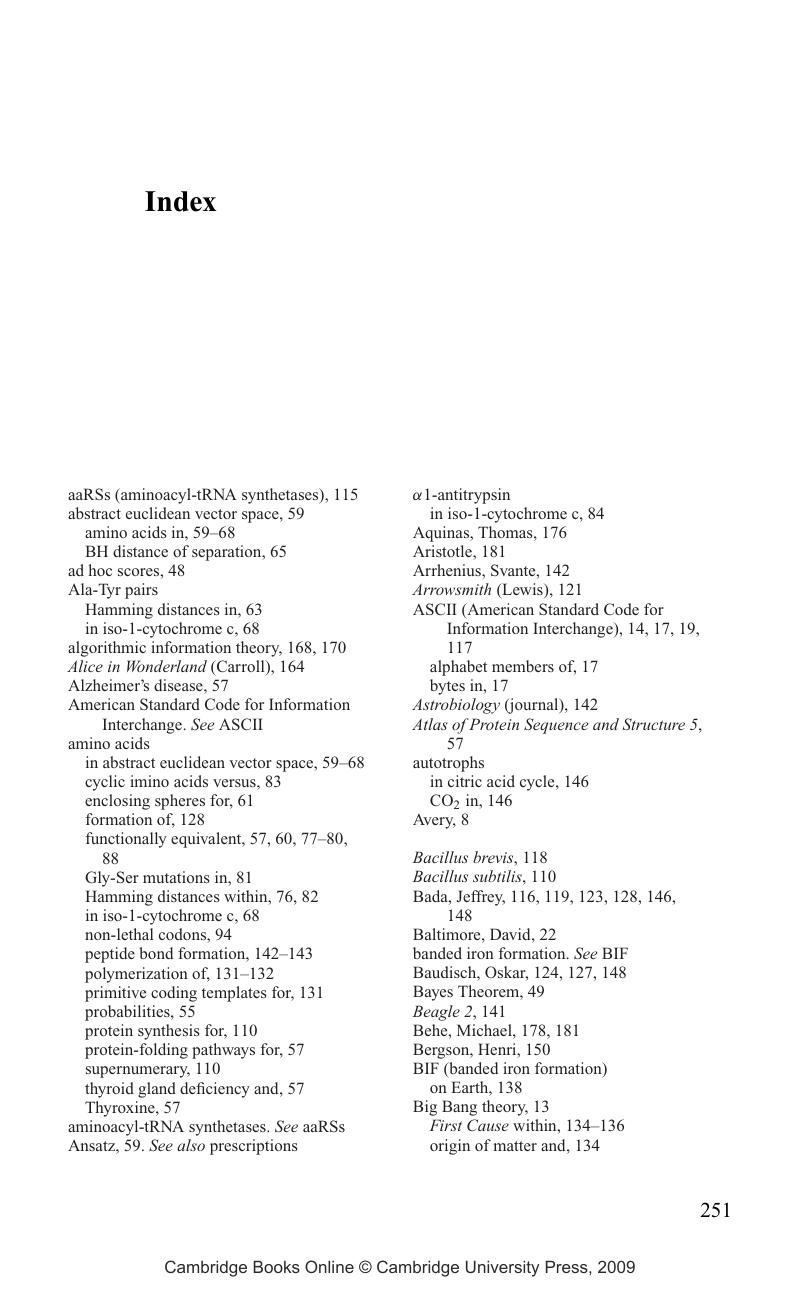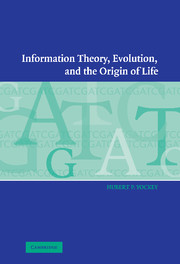Book contents
- Frontmatter
- Contents
- Preface
- 1 The genetic information system
- 2 James Watson, Francis Crick, George Gamow, and the genetic code
- 3 The Central Dogma of molecular biology
- 4 The measure of the information content in the genetic message
- 5 Communication of information from the genome to the proteome
- 6 The information content or complexity of protein families
- 7 Evolution of the genetic code and its modern characteristics
- 8 Haeckel's Urschleim and the role of the Central Dogma in the origin of life
- 9 Philosophical approaches to the origin of life
- 10 The error catastrophe and the hypercycles of Eigen and Schuster
- 11 Randomness, complexity, the unknowable, and the impossible
- 12 Does evolution need an intelligent designer?
- 13 Epilogue
- Mathematical appendix
- Glossary
- References
- Index
- Frontmatter
- Contents
- Preface
- 1 The genetic information system
- 2 James Watson, Francis Crick, George Gamow, and the genetic code
- 3 The Central Dogma of molecular biology
- 4 The measure of the information content in the genetic message
- 5 Communication of information from the genome to the proteome
- 6 The information content or complexity of protein families
- 7 Evolution of the genetic code and its modern characteristics
- 8 Haeckel's Urschleim and the role of the Central Dogma in the origin of life
- 9 Philosophical approaches to the origin of life
- 10 The error catastrophe and the hypercycles of Eigen and Schuster
- 11 Randomness, complexity, the unknowable, and the impossible
- 12 Does evolution need an intelligent designer?
- 13 Epilogue
- Mathematical appendix
- Glossary
- References
- Index
Summary

- Type
- Chapter
- Information
- Information Theory, Evolution, and the Origin of Life , pp. 251 - 259Publisher: Cambridge University PressPrint publication year: 2005

